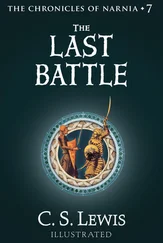For Krobot and the female former number prisoners, the way home led east, not west. After ensuring that they’d all received a thorough medical examination and enjoyed several days of good food and clean beds courtesy of the U.S. Army, Kramers deposited them at a displaced-persons camp operated by the United Nations Relief and Rehabilitation Administration.
That Zvonko Čučković did not accompany his fellow former prisoners was the result of some quick thinking on his part. Within hours of the liberation of Schloss Itter the Croat convinced French liaison officer Eric Lutten that someone should gather up all the personal items the VIPs had not been able to take with them and then ensure that the articles were safely reunited with their owners—in France. Zvonko volunteered for the mission, of course, and was given a travel document authorizing him to accompany the items to Paris and stipulating that he report back to French authorities in Austria by May 23. He made the trip, returned on schedule, and within weeks was repatriated to Yugoslavia. [308] 10. Čučković, “Zwei Jahren auf Schloss Itter,” 68–69.
The aftermath of the Schloss Itter battle was rather anticlimactic for Jack Lee and his men. The four infantrymen who’d taken part in the fight—Pollock, Worsham, Petruckovich, and Sutton—rejoined their unit, then assembling in Itter village. After turning Gangl’s body over to the priest at St. Joseph’s Church, Lee sent Basse and Boche Buster back to rejoin the 23rd TB. Once the burnt-out Besotten Jenny had been unceremoniously towed away by a tank-recovery vehicle, Lee and his four crewmen, accompanied by the surviving “tame” Germans, boarded a truck for the ride back to Kufstein. There the Wehrmacht men who’d risked their lives to help the GIs defend the French notables were marched off to a POW cage for processing.
The end of the battle for Schloss Itter did not mark the end of the castle’s role in World War II history, however. Even before the French VIPs had departed for Innsbruck, the 142nd Infantry’s George Lynch made the fortress his regimental command post, and over the following twenty-four hours he helped broker—through meetings with Georg von Hengl—a local cease-fire and the ultimate surrender of all German forces in Tyrol. Following Germany’s unconditional capitulation in the early morning hours of May 7, Schloss Itter became (though for less than twenty-four hours) the provisional headquarters of Allied occupation forces in Austria. [309] 11. Late in 1945 Schloss Itter was purchased by Wilhelm Woldrich, an Innsbruck hotelier who completely refurbished the castle and added an outdoor swimming pool and a larger garage. In 1964 the Hotel Schloss Itter was sold to a Frau Bettina McDuff, who in 1972 sold it to a Lichtenstein-based company, which, according to some sources, was owned at least in part by one-time Austrian Formula 1 race driver Niki Lauda. In the late 1980s the castle was purchased by Dr. Ernst Bosin, an Austrian attorney with offices in Kufstein, Wörgl, and Orlando, Florida. The hotel ceased operation about that time and has been closed to the public since then.
Several weeks after Germany’s surrender Basse and Lee were recognized for their leadership during the battle for Schloss Itter, the former with the Silver Star and the latter with the Distinguished Service Cross. [310] 12. The DSC is awarded for extreme gallantry and risk of life in combat; it is second in order of precedence only to the Medal of Honor. The Silver Star is the third-highest U.S. military decoration for valor in combat.
Lee’s citation noted his
extraordinary heroism in action, as Commanding Officer of Company B, 23rd Tank Battalion, in the vicinity of Wörgl, Austria, and the Itter Castle on 4–5 May 1945. Captain Lee with a small group of soldiers infiltrated into hostile territory, demoralized enemy forces, prevented the destruction of two key bridges, and caused 200 German soldiers to surrender. He found many prominent French prisoners at Itter Castle, and immediately organized a defense with both American and German troops. Despite a fanatical SS attack and heavy artillery barrage, Captain Lee’s men held until friendly troops arrived. Captain Lee’s initiative, boldness, courage, resourcefulness and outstanding qualities of leadership exemplify the highest traditions of the Army and the United States. [311] 13. General Order 212. I am indebted to Robert Lee for providing the original document.
–———–
WHILE THE BATTLE OF SCHLOSS Itter may have been a defining moment in the lives of many of its participants, it was not—except for Sepp Gangl and those unnamed attackers who may have died in the assault—the final moment. The various key players in the last full-fledged ground combat action of World War II in Europe—the French, Germans, Americans, and others—went back to their normal lives, and it is only right that we briefly examine how some of those lives played out.
THE FRENCH
ÉDOUARD DALADIER
The Bull of the Vaucluse returned to politics after the war, serving as a deputy in France’s Constituent Assembly and from 1953 to 1958 as mayor of Avignon. His son Jean later compiled and edited Daladier’s wartime diaries. Published as Journal de Captivité, 1940–1945 ( Prison Journal, 1940–1945 ) several years after Daladier’s death in October 1970 at age eighty-six, the book did exactly what the former Schloss Itter captive had told René Levesque it would do: excoriate his political rivals, especially Paul Reynaud.
MAURICE GAMELIN
Following his postwar return to France, Gamelin devoted himself to completing his memoirs, titled Servir . The three-volume work—much of which was written during the general’s time in Schloss Itter—was published in 1946 and 1947 to relatively lukewarm reviews. In 1954 Gamelin published a further volume covering his World War I service. He died in April 1958 at the age of eighty-six.
LÉON JOUHAUX AND AUGUSTA BRUCHLEN
His years of imprisonment may have further damaged Léon Jouhaux’s health, but they didn’t dim his dedication to the workers of France or to the international labor movement. After his liberation he resumed his leadership of the CGT, but in 1947 the organization’s Communist members forced his resignation. In reaction to what he saw as increasing Communist domination of the French labor movement he helped found the left-centrist Workers’ Force, which he led for the remainder of his life. In 1947 Jouhaux was also elected president of the French National Economic Council and in 1951 helped establish the International Labor Organization as an agency of the United Nations. Jouhaux was awarded the Nobel Peace Prize in 1951 and died on April 28, 1954.
Augusta Bruchlen aided Jouhaux in all his postwar efforts on behalf of workers, and she adopted the name Augusta Léon-Jouhaux following their marriage in 1948. She was an important labor leader in her own right, serving as director of the International Labor Organization’s Paris office from 1950 to 1971. Prison pour hommes d’Etat , her account of the Schloss Itter years, was published in 1973. This remarkable woman was named a commander of the Légion d’honneur in May 1992 and a Grand Officier of the same in July 2001. She died at the age of 104 on April 28, 2003, forty-nine years to the day after Léon Jouhaux.
PAUL REYNAUD AND CHRISTIANE MABIRE
Like his archrival Daladier, Paul Reynaud returned to politics soon after his liberation from Schloss Itter. He won election to the Chamber of Deputies in 1946 and over the following decade held several cabinet posts, including minister of finance and economic affairs. Published in 1951, Au Coeur de la Mêlée (titled In the Thick of the Fight in English) the larger of Reynaud’s two wartime memoirs, [312] 14. The other being Carnets de captivité .
devoted only 4 of more than 680 pages to events at Schloss Itter; the majority of the book was dedicated to explaining his own actions and generally belittling those of his many political rivals—including Daladier, of course. Reynaud was initially a strong supporter of Charles de Gaulle, though in 1962 he broke with the former general over what he saw as de Gaulle’s drive to consolidate his power through manipulation of the constitution. After losing his seat in the Chamber of Deputies, Reynaud dedicated himself to writing on various topics. He died at age eighty-seven on September 21, 1966.
Читать дальше












